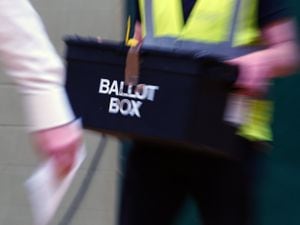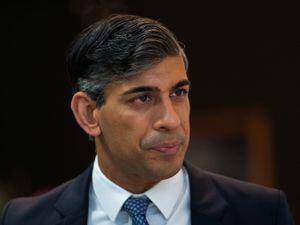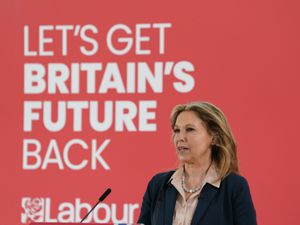Ex-Labour MPs challenged to fight by-elections after breaking from Corbyn party
The seven MPs quit Labour in protest at Jeremy Corbyn’s leadership on issues including Brexit and tackling anti-Semitism.

The seven MPs who quit Labour have been challenged to stand in by-elections.
Shadow chancellor John McDonnell called on the breakaway group to do “the honourable thing” and fight to retain their seats.
Former Labour leader Ed Miliband said he deeply regretted the decision made by his former colleagues, while Unison union general secretary Dave Prentis said the split was “terrible news”.
But Unite union boss Len McCluskey hit out at the “splitters” who had “no stomach for a fight for Labour’s core values”.
Chuka Umunna, Luciana Berger, Chris Leslie, Angela Smith, Gavin Shuker, Mike Gapes and Ann Coffey quit Labour over issues including Brexit and anti-Semitism in order to sit as The Independent Group in Parliament.
Mr McDonnell told the BBC: “All of these MPs stood on our manifesto in 2017, they all increased their majorities.
“Now they are on a different platform, so the honourable thing, the usual thing, for them to do now is to stand down and fight by-elections back in their constituencies.”
The call was rejected by the group of MPs, who said the “crisis” of Brexit meant elections would be a distraction.
Unite boss Mr McCluskey said there was a “strong whiff of hypocrisy” about the resignations.
He told the BBC that the MPs had stood on a manifesto which promised to respect the 2016 referendum and “all of their heartbreak about what’s happened in Brexit sounds a little bit hollow”.
He added “the issue about anti-Semitism, I just think, is grossly unfair” because Labour general secretary Jennie Formby has “done more in the few months that she has been in office than previous administrations”.
“History will judge them,” Mr McCluskey added.
But Unison’s Mr Prentis said Labour had to understand what had led the MPs to quit and “get its act together over Brexit”.
“Labour’s overriding concern must be to look long and hard at the reasons why the MPs feel they are no longer able to stay in the party,” he said.
Mick Whelan, general secretary of train drivers’ union Aslef, said the seven MPs had decided to “walk out into the political wilderness”.
Mr Miliband, whose defeat at the 2015 general election led to Mr Corbyn being voted in as his successor, said: “I deeply regret the decision of my former colleagues to leave Labour.
“Labour’s values are still my values and a Labour government is the best hope for the country we need. Labour must and will continue to be a broad church as it has always been.”
Labour MP Alison McGovern, chairwoman of the Progress group which is seen as the Blairite wing of the party, said she was “saddened” by the resignations.
“Progress will continue to argue for members to stay in the party – a task that is obviously made harder by some of the abuse and intolerance that has been shown towards so many who simply want to debate ideas and stand up for basic values such as our internationalism and our abhorrence of anti-Semitism and racism,” she said.
Tory Party chairman Brandon Lewis said the resignations confirmed that Labour had “changed irreversibly” under Mr Corbyn.
“Labour has become the Jeremy Corbyn Party – failing to take action on everything from tackling anti-Jewish racism to keeping our country safe,” he said.
Liberal Democrat leader Sir Vince Cable said his party was open to working with “like-minded groups” on getting a second Brexit referendum.
He said: “It is not unexpected, or unwelcome, that a group of Labour MPs have decided to break away from Corbyn’s Labour, in part motivated by his refusal to follow the party’s policy on Brexit.”





